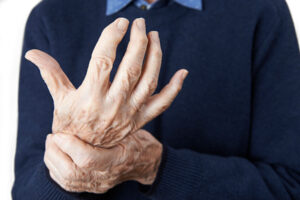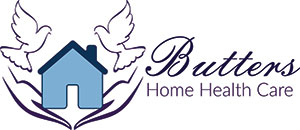Rheumatoid Arthritis and Hydration: What Seniors Need to Know

Senior home care can help seniors with Rheumatoid Arthritis manage their symptoms and get the support they need as they age in place.
Rheumatoid arthritis (RA) is a chronic inflammatory disease that mostly affects the joints but has far-reaching effects throughout the body. Managing hydration is a very important—yet frequently overlooked—part of maintaining overall health and relieving symptoms in seniors with RA. Senior home care providers can help seniors understand the connection between RA and arthritis so they can better manage their health.
The Relationship Between Rheumatoid Arthritis And Hydration
RA causes the immune system to wrongly attack healthy joint tissue, resulting in inflammation, discomfort, and stiffness. But the consequences do not end at the joints. RA can induce systemic symptoms such as exhaustion, dry mouth, and renal issues, all of which are linked to hydration levels.
Here’s how RA affects fluid balance in your body:
- Inflammation and Fluid Retention: Chronic inflammation can affect fluid flow, resulting in joint swelling while the rest of the body is dehydrated. This produces a contradiction in which seniors feel bloated but are actually dehydrated.
- Medication Side Effects: Many popular RA medications, such as NSAIDs and corticosteroids, can impair renal function, resulting in increased urine or fluid retention. Some medications also cause dry mouth and increased thirst, which are symptoms of dehydration.
- Reduced Mobility: Seniors with RA may struggle to get up for frequent water refills or restroom trips, which can discourage fluid consumption.
- Sweat Loss: Low-grade fevers and night sweats, both typical RA symptoms, can cause fluid loss without the senior recognizing it.
Why Hydration Matters
Proper hydration is essential for seniors’ joint health, cognitive function, and cardiovascular fitness. When properly hydrated, their joints are more lubricated, inflammation is less severe, and their body are better suited to eliminate pollutants, including pharmaceutical byproducts.
Seniors’ Tips for Staying Hydrated With RA
Managing hydration does not include drinking liters of water all at once; rather, it involves developing consistent, conscious behaviors. With the help of senior home care, seniors can incorporate the following tips into their day:
- Set a Schedule: Seniors should use a timer or hydration reminder app to remind themselves throughout the day.
- Use Hydration Aids: It can be easier for seniors to stay hydrated when they enjoy the process. For instance, seniors might enjoy a water bottle in their favorite color or using an insulated tumbler if they prefer cold water.
- Eat Hydrating Foods: Senior home care providers can teach seniors how to incorporate water-rich fruits and vegetables, including cucumbers, watermelon, oranges, and lettuce, into their daily diet. These can help to increase hydration intake while also providing vital nutrients.
- Reduce Dehydrating Substances: To reduce dehydration, seniors should avoid alcohol, coffee, and high-sodium foods, all of which can dehydrate the body and worsen joint inflammation.
- Monitor Urine Color: An easy way to determine hydration is to examine urine color—light yellow is preferable, while darker urine may suggest a need for additional fluids.
- Communicate with Healthcare Providers: Seniors should discuss their medications with their doctor or pharmacist on a regular basis to understand how they may influence hydration.
Hydration is more important than seniors might realize, especially if they’re diagnosed with RA. Staying hydrated is a simple yet effective self-care practice that benefits renal function, reduces joint discomfort, and helps seniors avoid excessive fatigue. Senior home care can encourage seniors to make hydration a daily habit to help alleviate RA symptoms and improve their overall health.
If you or an aging loved one is considering Senior Home Care in Falls Church, VA, please contact the caring staff at Butters Home Health Care today. (703) 371-2113
Sources:
- https://www.everydayhealth.com/rheumatoid-arthritis/how-to-stay-hydrated-with-rheumatoid-arthritis/#:~:text=But%20if%20you%20have%20rheumatoid,fatigue%2C%20inflammation%2C%20and%20stiffness.
- https://www.healthline.com/health/rheumatoid-arthritis/dehydration-and-rheumatoid-arthritis
- https://creakyjoints.org/living-with-arthritis/dehydration-and-arthritis/
